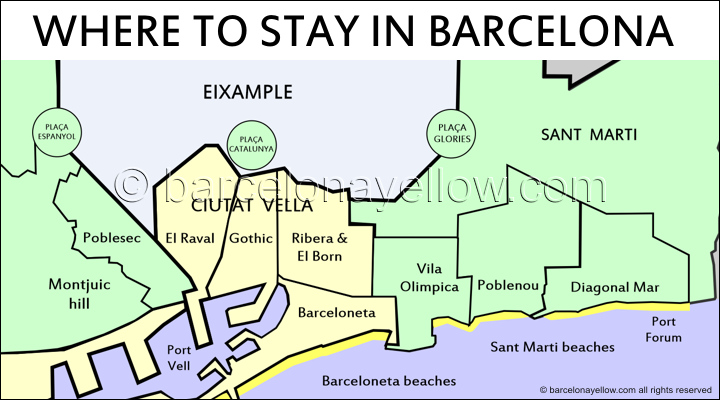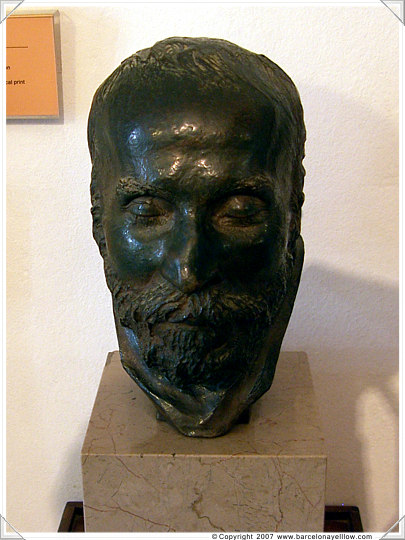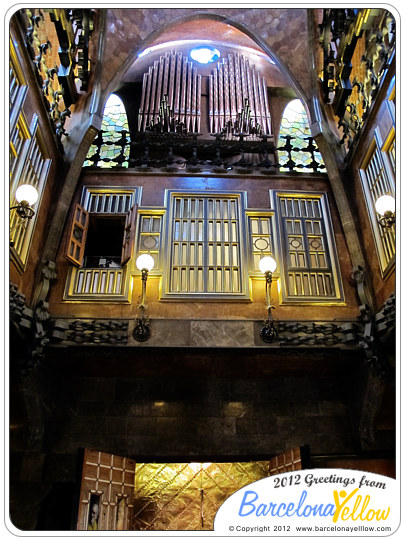| HOME |
| Hotels |
| Apartments |
| Attractions |
| Restaurants |
| Tickets & tours shop |
| Tours |
| Maps & travel planners |
| Airports & transport |
| Maps |
| Events |
| Shopping |
| Contact us |
|
| Barcelona areas - El Raval - in Ciutat Vella district |
Barcelona areas - El Raval El Raval is a neighbourhood (barrio) in the medieval Ciutat Vella district of Barcelona. Ciutat Vella means 'old town' in the Catalan language. El Raval is the artsy, bohemian, slightly edgy part of Barcelona's old medieval city. El Raval is generally considered safe during the day, but it does have a growing reputation for muggings and parts of the Raval mostly near the port, are disreputable especially after midnight. Guide to avoiding pickpockets. On the whole, however, the Raval is a vibrant and authentic part of Barcelona's old city that brings life and colour to Barcelona. Many traveller blogs confuse the Ciutat Vella with the 'gothic area,' but actually there are four neighbourhoods in the Ciutat Vella district and one of these is El gotico - the gothic area. The Ciutat Vella includes the neighbourhoods of the El Raval, el Born, Barrio Gótico and la Barceloneta. El Raval area of BarcelonaEl Raval neighbourhood was originally an area of markets and gardens that was outside the first medieval city walls of Barcelona. The city wall was on the left of what is now the walking street La Rambla if you are walking towards the port from Plaça de Catalunya. In those times La Rambla street was a stream that flowed outside the old city wall. The markets, gardens and convents of the Raval was later developed, mostly into factories and workers tenement blocks which eventually make the Raval one of the most densely populated areas in the world - and one of the worst workers' ghettos in the world too.Today however, El Raval is probably the most multi-cultural neighbourhood in Barcelona attracting creative, fun, edgy and artistic residents but also a few unsavoury characters too. The lower part of the Raval nearest the port was, and is, the notorious part, where one could find the most dodgy characters especially in the period when it was known as the 'Barrio Chino'. That was where dock workers and visiting sailors and even Pablo Picasso went to have a good time. Barrio Chino was known as the roughest area in Barcelona with a red light district full of brothels and bars. Picasso frequented the Raval brothels in his youth in the early 20th century when the Picasso family lived in Barcelona. The name Barrio Chino did not originate from any kind of Chinese connections, but the name came from a journalist in the 1920ies, who used the name to describe the area after seeing a movie about San Francisco's Chinatown, and the name stuck. Today the Raval has wide mix of communities. There is a big Moslem community, mostly of Moroccan and Pakistani origin alongside a Philipino community as well as the Catalans and a growing international community. Raval restaurants are neo-hippy, ghetto-trendy and many other variations that have a reputation for some of the tastiest food in town. For residents and visitors there is an plethora of yoga schools, art galleries, cultural workshops, boutiques with influences from every corner of the globe. El Raval tourist attractions & sightsEl Raval has several interesting tourist attractiona. MACBA museumModern art lovers will enjoy the MACBA Museum of Contemporary Art designed by American architect Richard Meir. The MACBA has a large open square that is popular with Barcelona's skateboard community.CCCB museumCulture lovers will also appreciate the CCCB Centre for contemporary Culture ilocated in an 18th century building and next to the MACBA museum. The CCCB hosts many major art and cultural festival festivals.Barcelona's most famous food market Mercat de Sant Josep de la Boqueria, usually just called La Boquería, is just inside the Raval with the main entrance on La Rambla street. You can also visit the oldest hospital in Barcelona where the famous architect Gaudi died after being struck by a tram in 1926. Antic Hospital Sant Creu museum You can visit the Antic Hospital Sant Creu which is an former 14th century hospital and now a museum. This is where Barcelona's most famous Modernist architect Gaudi died after being struck by a tram in 1926. The photo above is Gaudi's death mask which was made at the hospital but ican be seen in the Gaudi house museum in Park Guell. You can still find some herbal and medicinal shops near the Antic Hospital Sant Creu. Palau GüellNear the port in the Raval area and quite close to La Rambla street, is a famous building by Gaudi called the Palau Güell- this is a modernist palace built for Eusebi Güell by Gaudi and well worth a visit. Events Raval areaRaval usually has an annual Raval Festa Major neighbourhood festival in July and a cultural festival Festival Raval(s) in November© Copyright Barcelonayellow.com Do not copy from this page without permission. All rights reserved |
| Last Updated on Friday, 31 May 2024 08:36 |
|
|
Thursday, 03 July 2025

Barcelona Spain - Barcelona Travel Guide - Copyright 2007-2025
Privacy Policy and Cookies • Legal Disclaimer • Copyright
BarcelonaYellow SiteMap 2025
Barcelona Latest News:
COVID-19 - Barcelona Latest News
Barcelona Safety Guide 2025
Barcelona Top 10 attractions 20254
Plan 3 days in Barcelona 2025
About us
About us
Contact us
Privacy Policy and Cookies
Copyright notice
Legal disclaimer
Twitter Barcelona events
Partnerships
Advertising
COVID-19 - Barcelona Latest News
Barcelona Safety Guide 2025
Barcelona Top 10 attractions 20254
Plan 3 days in Barcelona 2025
About us
About us
Contact us
Privacy Policy and Cookies
Copyright notice
Legal disclaimer
Twitter Barcelona events
Partnerships
Advertising
Accommodation
Hotels in Barcelona
Hotels near Fira Exhibition
Hotels near Camp Nou
Hotels near Cruise Ships
Short Stay Apartments
Practical information
Useful visitor information
How to get to Barcelona airport
Cruise Ship Terminals
Barcelona maps
Airport buses
Barcelona metro
Taxis
Travel cards
Hotels in Barcelona
Hotels near Fira Exhibition
Hotels near Camp Nou
Hotels near Cruise Ships
Short Stay Apartments
Practical information
Useful visitor information
How to get to Barcelona airport
Cruise Ship Terminals
Barcelona maps
Airport buses
Barcelona metro
Taxis
Travel cards
Things to do
Top 10 attractions Barcelona
Photos of Barcelona
Restaurant Guide
Nightlife Guide
Things to do in Barcelona
Barcelona beaches
Book tours and tickets
Skiing near Barcelona
Weather Barcelona
Weather in Barcelona
5 day forecast Barcelona
Top 10 attractions Barcelona
Photos of Barcelona
Restaurant Guide
Nightlife Guide
Things to do in Barcelona
Barcelona beaches
Book tours and tickets
Skiing near Barcelona
Weather Barcelona
Weather in Barcelona
5 day forecast Barcelona
Top Festivals and events
Barcelona Events 2025
Christmas in Barcelona
New Years Eve 2025
MWC 2025 Barcelona
Sant Jordi's Day
Barcelona Marathon
Barcelona Half Marathon
Easter
Festa de Gracia
La Merce Festival
FC Barcelona calendar
Barcelona Events 2025
Christmas in Barcelona
New Years Eve 2025
MWC 2025 Barcelona
Sant Jordi's Day
Barcelona Marathon
Barcelona Half Marathon
Easter
Festa de Gracia
La Merce Festival
FC Barcelona calendar
Moving to Barcelona
Moving to Barcelona
Long term apartment rentals
Relocation agencies
Real estate agencies
Spanish schools
Meeting people
Finding work
Yellow pages directory
Partner websites:
DayTripsBarcelona.com
Stepbac.com
PhotoMemoirs.co
Helpfurl.com
Moving to Barcelona
Long term apartment rentals
Relocation agencies
Real estate agencies
Spanish schools
Meeting people
Finding work
Yellow pages directory
Partner websites:
DayTripsBarcelona.com
Stepbac.com
PhotoMemoirs.co
Helpfurl.com
